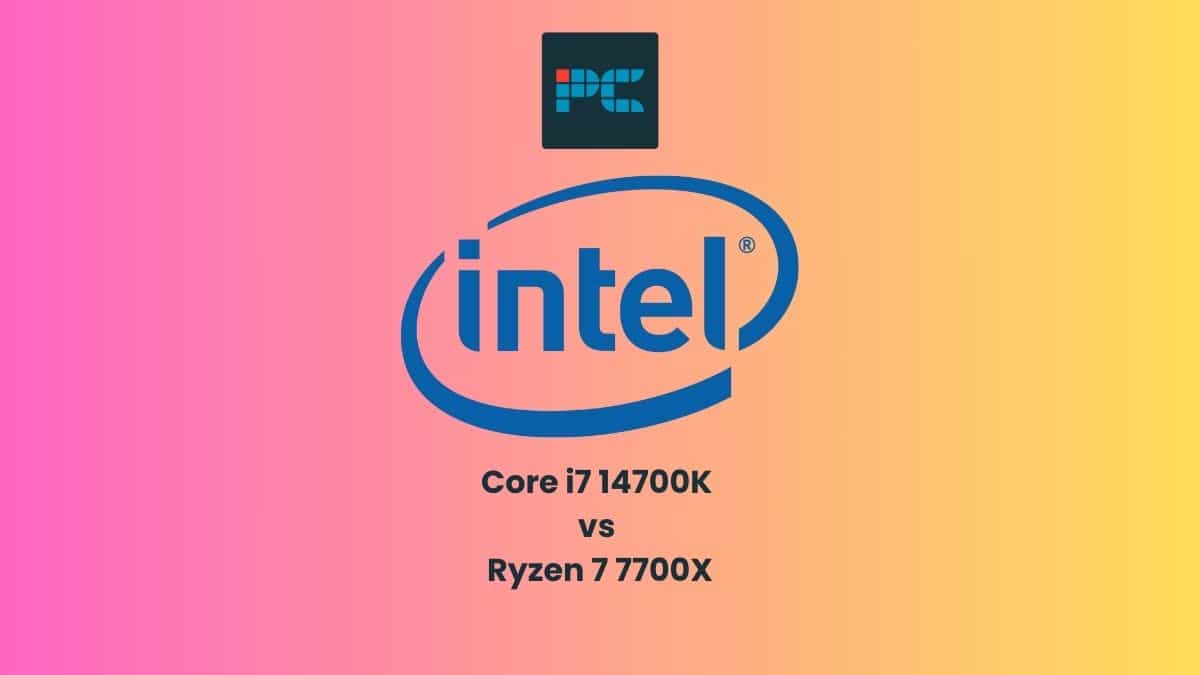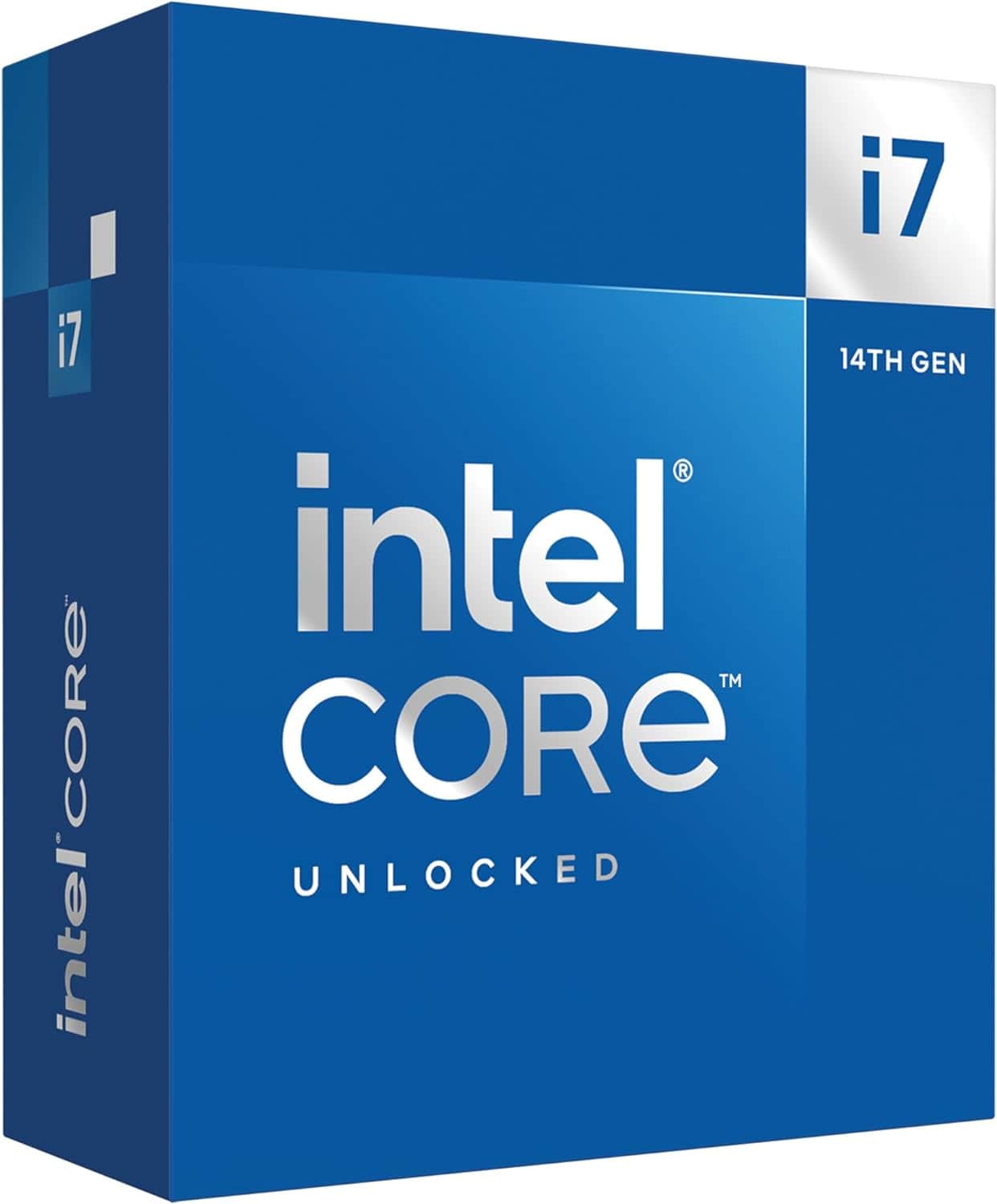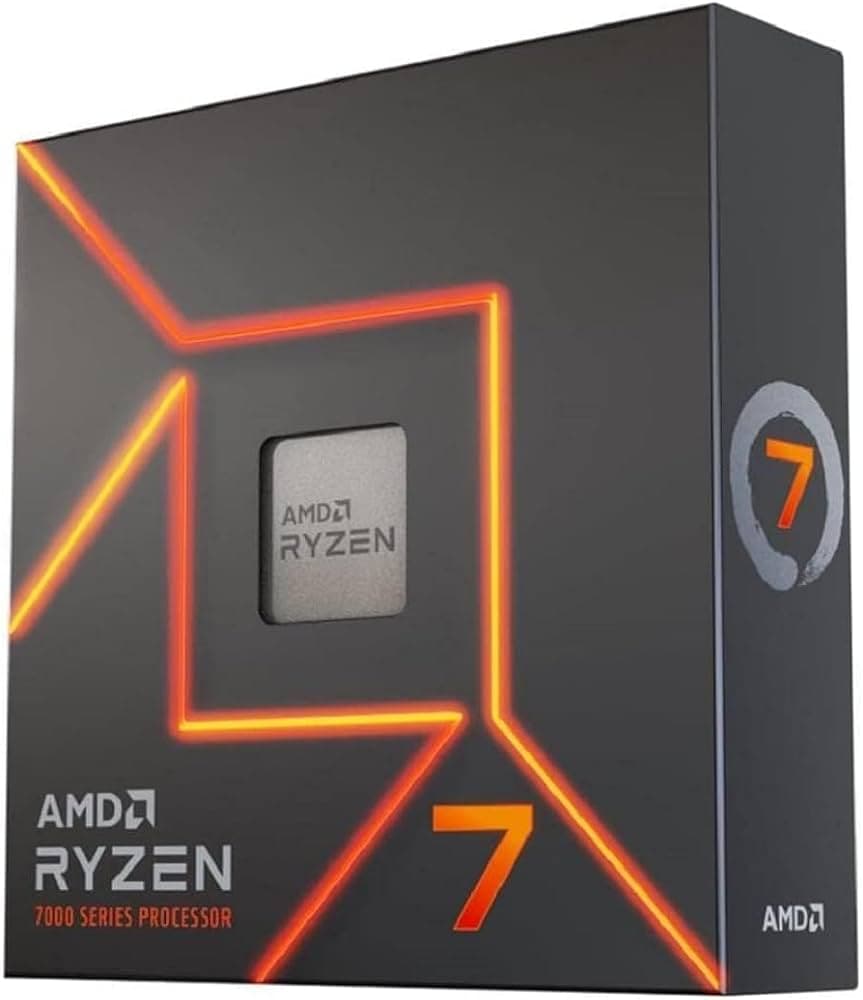Intel Core i7 14700K vs Ryzen 7 7700X – second tier tussle

Table of Contents
With so many CPU options to choose from, it becomes difficult to opt for one processor. That is why we have compiled all the important information about the two competitive CPUs, with Intel's initial offerings from its newest range now here. We look at the Intel Core i7 14700K vs Ryzen 7 7700X. In this article, we'll be discussing how these two differ to help you choose the best option for yourself.
Intel's processors are usually a good choice for gamers and those needing productivity power too. And considering the Intel legacy, any new development gets instant attraction. The Intel Core i7 14700K is part of Intel's new 14th gen lineup. The news around Intel Core i7 14700K sound enticing, and if you're looking to pick up the new CPU keep an eye on our where to buy Intel 14th gen page.
Prime Day is finally here! Find all the biggest tech and PC deals below.
- Sapphire 11348-03-20G Pulse AMD Radeon™ RX 9070 XT Was $779 Now $739
- AMD Ryzen 7 7800X3D 8-Core, 16-Thread Desktop Processor Was $449 Now $341
- ASUS RTX™ 5060 OC Edition Graphics Card Was $379 Now $339
- LG 77-Inch Class OLED evo AI 4K C5 Series Smart TV Was $3,696 Now $2,796
- Intel® Core™ i7-14700K New Gaming Desktop Was $320.99 Now $274
- Lexar 2TB NM1090 w/HeatSink SSD PCIe Gen5x4 NVMe M.2 Was $281.97 Now $214.98
- Apple Watch Series 10 GPS + Cellular 42mm case Smartwatch Was $499.99 Now $379.99
- ASUS ROG Strix G16 (2025) 16" FHD, RTX 5060 gaming laptop Was $1,499.99 Now $1,274.99
- Apple iPad mini (A17 Pro): Apple Intelligence Was $499.99 Now $379.99
*Prices and savings subject to change. Click through to get the current prices.
Both Ryzen 7 7700X and the Intel Core i7 14700K should offer ample power for gaming, but how do you decide which is the best for you? To make this decision easier, we have compared these two based on specifications, performance indicators, and price.
Intel Core i7 14700K vs Ryzen 7 7700X specs
The specifications below will give you an inside picture of each processor and help you understand where the main comparisons are for these two midrange competitors. Below the table we’ll dive into the differentiators for the Intel Core i7 14700K and AMD Ryzen 7700X:
| Specifications | Intel Core i7 14700K | AMD Ryzen 7 7700X |
|---|---|---|
| Architecture | Raptor Lake Refresh | Raphael |
| Core | 20 | 8 |
| Threads | 24 | 16 |
| TDP | 125 Watts | 105 Watts |
| Base Clock Speed | 3.4 GHz | 4.5 GHz |
| Boost Clock Speed | 5.3 GHz | 5.4 GHz |
| L2Ccache | 28 MB | 8 MB |
| L3 Cache | 33 MB | 32 MB |
| Memory Support | DDR4 / DDR5 | DDR5 |
| MSRP | $419 | $399 |
The new 14700K is clearly the power puncher here, based on cores and threads, but it does have a higher base and boost clock speed for a theoretical raw power advantage. It also offers a lower TDP, meaning a lower power profile. Cache is similar too, as the 7700X cannot claim the infinity cache of CPUs like the 7950X3D, handy in its own battle with the 14900K.
When it comes to cores and threads, the 14700K’s 20-core and 24-thread structure is certainly more handy than the the 7700X’s 8 cores and 16 threads. It’s not an area where the AMD Ryzen 7 CPU can compete, and – of course – Intel’s 14th gen will support both DDR4 and DDR5 RAM.
So, if you’re running an older-gen LGA 1700 socket CPU on a Z690 or Z790 motherboard, it makes it easier to opt for the Raptor Lake Refresh…unless you want the promise of ongoing platform support with AM5. Of course, a new AM5 build would potentially mean you need new desktop components – a desktop build rather than an upgrade.
Intel Core i7 14700K vs Ryzen 7 7700X – Performance indicators
Of course, performance is an important metric to be considered when you are planning to invest in a new processor. Comparing the Intel Core i7 14700K and AMD Ryzen 7 7700X, the former clearly offers better multi-threaded performance, whereas the latter should do better in single-threaded tasks. That said, the 14700K has moved the needle a little since the 13700K. And when we compared the with the 7700X. the 13th gen chip was the winner – so the gap is likely to be wider.
Intel Core i7 14700K vs Ryzen 7 7700X – Price
On the price front, the AMD Ryzen 7 7700X pricing range starts from $319, well below its MSRP of USD $399. On the other hand, the Intel Core i7 14700K has arrived at USD $419. What’s becoming clear here for new build options is that you can pay more for extra power on a platform (Raptor Lake) that will get no new CPUs. Or you can save a substantial amount and opt for a less powerful option that has a platform (AM5) AMD has committed to supporting until 2026.
PC Guide view
Both Intel Core i7 14700K and AMD Ryzen 7 7700 are good options for gamers and those needing productivity capabilities. However, the best multitasker, and gaming processor here will be the the Core i7 14700K. While AMD’s cheaper and less power-hungry processor is a fine choice for forward-facing builds, the 14th gen is designed to push Raptor Lake that bit further. It has done, and for pure performance (if not forward build-friendly reasons) the i7 14700K takes the win.



